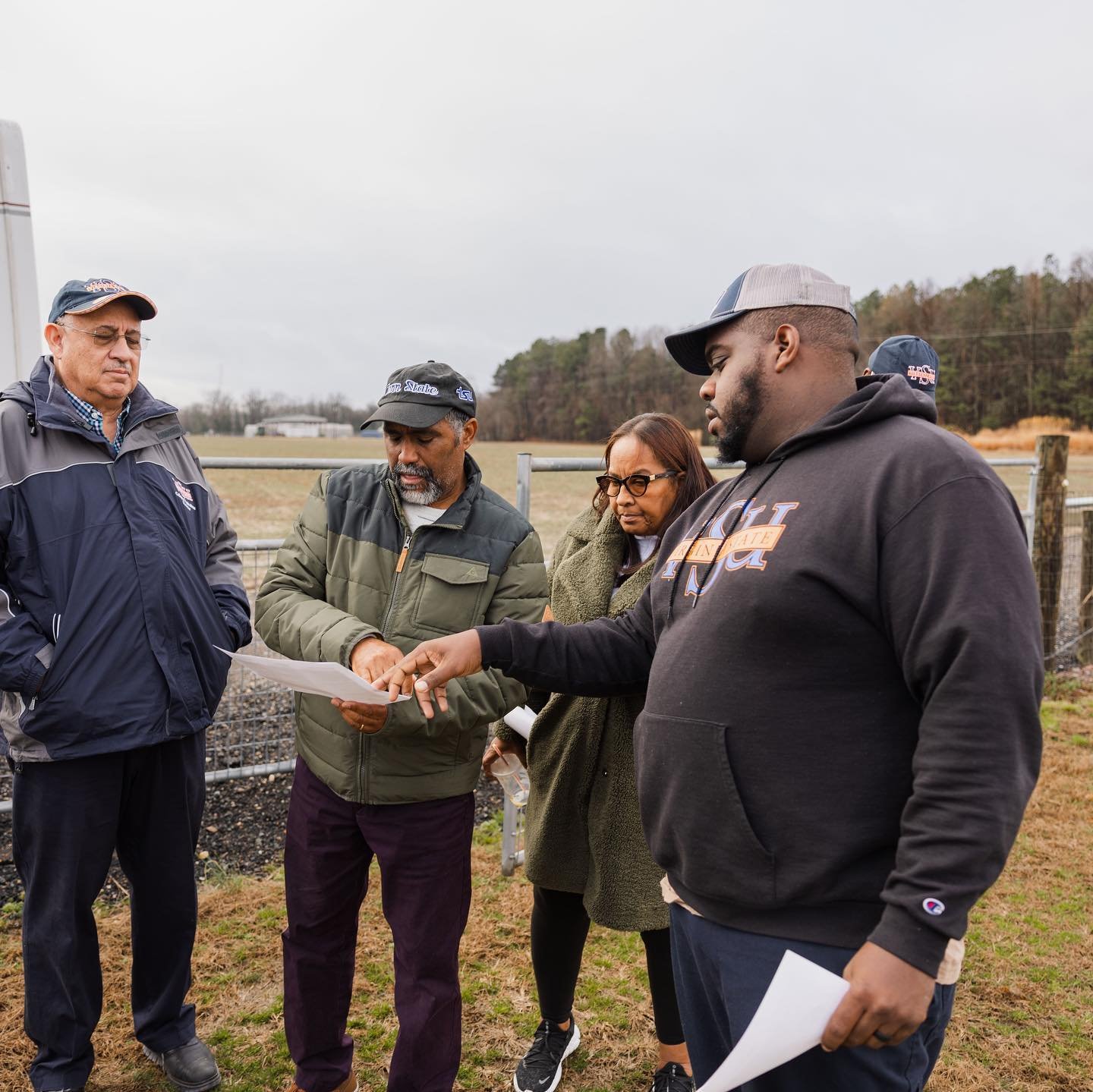The Small Farm Outreach Program Helps Small-Scale Black Farmers Make Big Impacts
THE SMALL FARM OUTREACH PROGRAM HELPS SMALL-SCALE BLACK FARMERS MAKE BIG IMPACTS
Despite incredible hardships, obstacles and risks, by 1920, black farmers owned nearly one million farms in the U.S. Yet, that number plunged to about 45,000 or 1.3% of all farms in the U.S. according to a 2017 USDA report. The drop was in large measure due to systemic racism and failure to equally administer government programs intended to support farmers. Furthermore, technological advancements created a chasm between small family-owned farms and huge corporate farms. The government is now making progress in addressing past wrongs and accessibility to agricultural technology.
Small Farm Outreach Program, part of Virginia State University College of Agriculture and Virginia Cooperative Extension empowers small-scale, limited-resource, socially disadvantaged, minority and veteran farmers and ranchers to own, operate and sustain their independent enterprises through education, information and assistance. SFOP serves Virginia and parts of Maryland and North Carolina. It is making a big impact, especially on small-scale black farmers.
“Education is key,” said Clifton “Clif” Slade, black owner of Slade Farms in Surry, Virginia. “Gone are the days of mediocre farm management. SFOP ensures I have the knowledge, skills, information and connections I need to remain successful.”
Education
Workshops listed on the SFOP online calendar may be conducted online or onsite. Two examples:
Small Farm Orientation lays the foundation on which small-scale farmers with zero- to five-years experience can build a profitable and sustainable farm enterprise. This course covers every aspect of farm operation from assessing and remediating soil, planting, harvesting and marketing to record-keeping, tax planning and reducing risk. Participants receive a comprehensive manual that not only helps during the course but also serves as a reference guide to help small-scale farmers make wise decisions.
“SFOP workshops and courses are critical to small-farm success. The education is there, you just need to soak it up like a sponge,” said Slade with a sober warning. “If small-scale farmers do not manage their farms well, they will keep losing them.”
Agribusiness Production & Financial Management Course launches in spring 2023 and covers financial management, balance sheets, cash flow, income statements and more. Those who successfully complete the course, which consists of seven modules plus quizzes, qualify to apply for an FSA loan since VSU is licensed to conduct this FSA prerequisite training. Taking the course does not ensure you will receive a loan.
“We look forward to this opportunity to provide our farmers with the education they need in a format that may be more convenient and cost-effective,” said Herbert Brown Jr., assistant director of SFOP.
Information
Glean information during SFOP-hosted events or information sessions that appear on the calendarand online at the Virginia Small Farm Resource Center.
SFOP hosts sessions throughout the state that are presented by representatives from USDA, the Virginia Department of Conservation and Recreation and elsewhere. SFOP events, such as field days, farm tours, State Fair exhibits, and other activities not only provide information directly but also help participants to network with experts and other farmers who offer tremendous insights.
Furthermore, SFOP maintains the Virginia Small Farm Resource Center, a clearinghouse for the education, resources and news that small-scale and beginning farmers need to be profitable and sustainable. Virginia’s small-scale farmers can quickly and easily find accurate, relevant and valuable information from agriculture-related agencies, institutions and organizations and connect with representatives from local, state and federal government agencies, financial-services experts and agricultural production experts. They can access diverse models of farm production and operation, and discover grant, incentive and funding opportunities, marketing resources, planting schedules, training sessions and more.
Assistance
SFOP is committed to helping small-scale farmers succeed. They can schedule an SFOP program assistant to visit their farm, assess their fields and address their concerns, or schedule drone photography and mapping of their fields for a more comprehensive view and better planning. Soon, Smart Ag will be available, whereby the information from the prior drone mapping will be used to apply nutrients and pest control to specific areas as needed.
Additionally, SFOP lends farm equipment that may be too expensive to purchase.
“We have tillers, potato diggers, water tanks, and other farm tools and equipment to assist participants with prepping their land or harvesting their produce,” said Roland Terrell, SFOP program assistant. “We also have a seed drill that helps farmers plant small grain, pollinator habitats and cover crops.”
Those in Piedmont, Virginia, and surrounding areas, can borrow a 3-point hitch attachment that can lay drip irrigation tape or black plastic.
Slade, a third-generation black farmer who retired as both an Extension agent and an SFOP program assistant, understands why many may be wary of government programs, yet he fully endorses SFOP. Slade encourages small-scale farmers, especially black farmers, to take advantage of the SFOP opportunities if they want to develop profitable, sustainable enterprises.
“I may not be a beginning farmer,” said Slade. “But, I’ve continued to improve my farm as a result of what I’ve learned from SFOP.” Slade believes in “responsible farming with profitable results,” which he exemplifies and encourages others to practice
“SFOP is an incredibly impactful program that is part of Extension and is administered by VSU College of Agriculture,” said Dr. Robert N. Corley III, interim dean/1890 Extension Administrator of Virginia State University’s College of Agriculture and vice provost for Academic Affairs. “SFOP consists of transformational leaders who empower small-scale black farmers, among others, to own, operate and sustain their farms, provide for their families, positively impact their communities, and contribute to Virginia's economy. Indeed, GREATER HAPPENS HERE.”
For more information about the Small Farm Outreach Program, contact: 804-524-3292 or visit www.ext.vsu.edu.
# # #
Related Links

